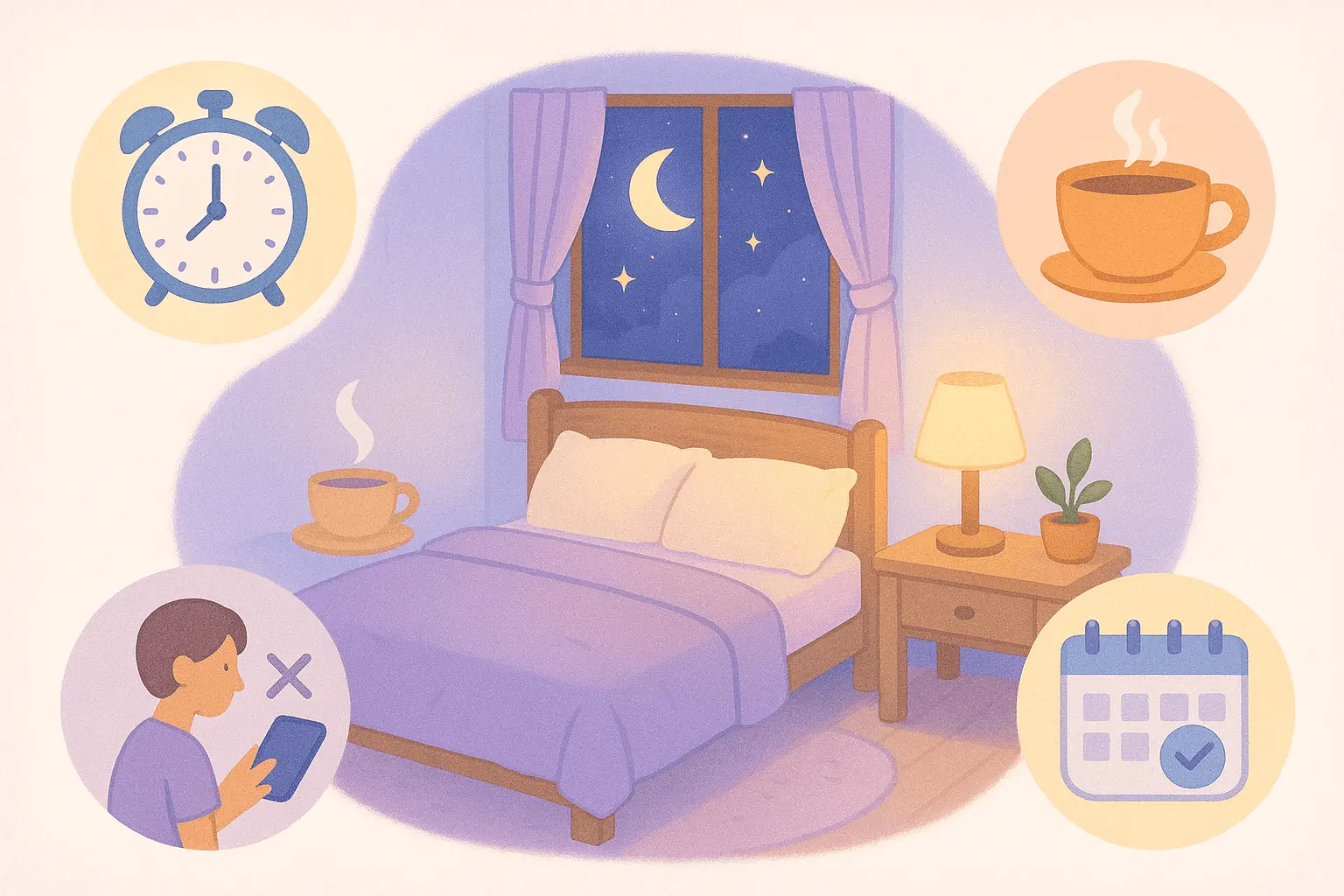Insomnia
If you're struggling with insomnia, you're not alone. Millions of people worldwide face the challenges of poor sleep and its consequences on physical and mental well-being. Whether you suffer from acute insomnia or chronic insomnia, the effects can be overwhelming, impacting your daily life, health, and overall quality of life.
In this guide, we will explore insomnia in-depth, providing valuable insights based on the practices of Dr. Jahangir Kabir, a renowned expert in healthy living. From lifestyle changes to effective sleep strategies, we’ll discuss holistic approaches to combatting insomnia and getting back to a peaceful night’s sleep.
By following Dr. Kabir's expert advice, you'll not only understand the root causes of insomnia but also discover practical steps that can help you take control of your sleep patterns. The journey to better sleep starts here, and with the right tools and support, you can achieve lasting relief and restore your health.
What is Insomnia and Why is it Affecting You?
Insomnia is a common sleep disorder that affects millions of people worldwide. It involves difficulty falling asleep, staying asleep, or waking up too early, and it can result in chronic insomnia when it persists over a longer period. Understanding why insomnia occurs and the factors that contribute to its development is the first step toward reclaiming your restful sleep and overall well-being.
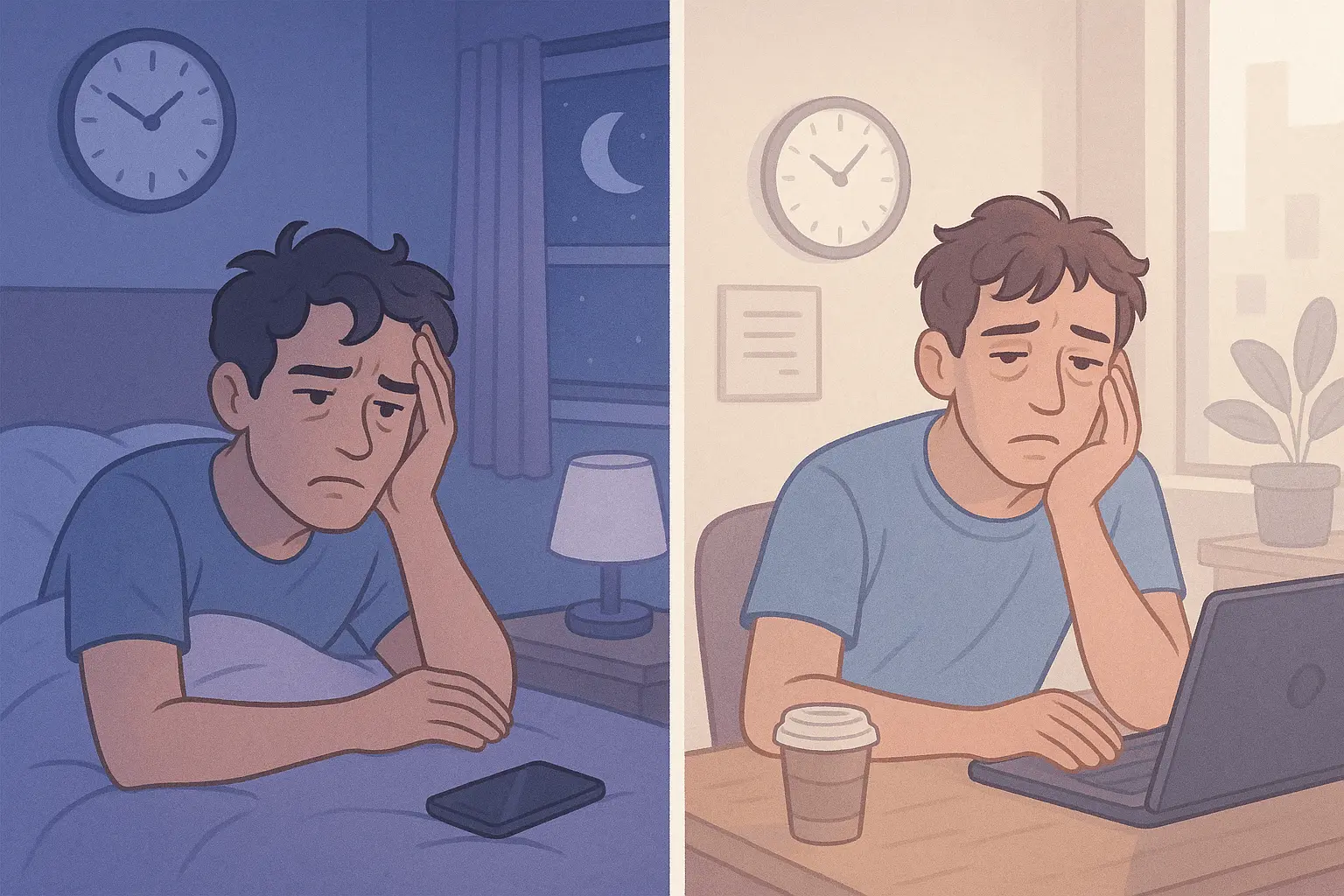
Understanding Insomnia
Insomnia is not just about occasional sleeplessness. It can interfere with your ability to function during the day, affecting your mood, concentration, and energy levels. The causes of insomnia can vary widely and may include physical conditions, mental health disorders, environmental factors, and lifestyle choices. Common causes of insomnia include stress, anxiety, depression, chronic pain, and poor sleep hygiene.
In some cases, chronic insomnia develops, where sleep disturbances occur at least three times a week for three months or longer. Identifying the underlying cause of insomnia is key to finding an effective solution and restoring your sleep.
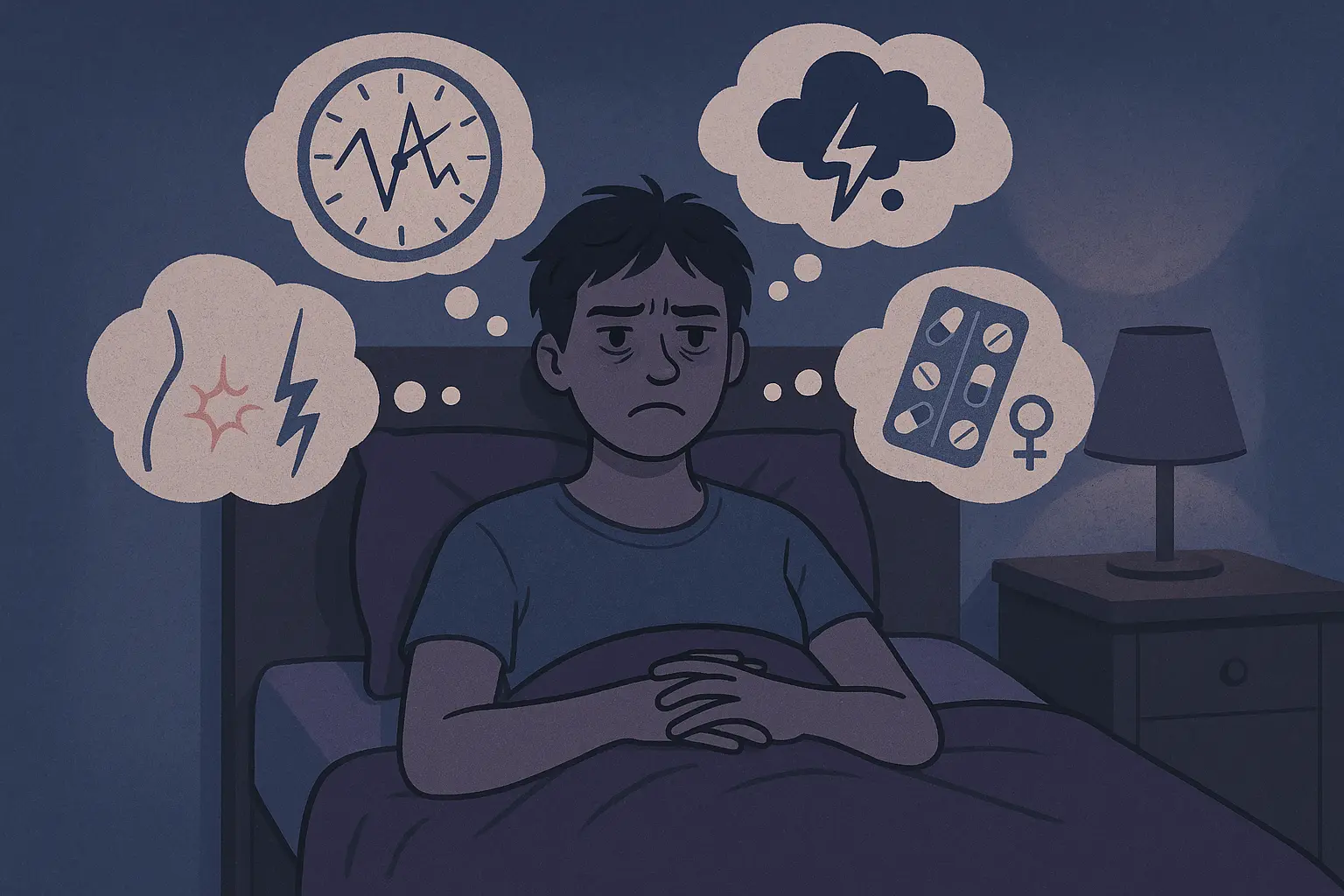
Why Insomnia Persists
Insomnia doesn’t always resolve on its own, and its persistence can often be attributed to several factors. One of the most common reasons is sleep cycle disruption. When your natural circadian rhythm is thrown off, it can lead to insomnia. For example, irregular sleep patterns, frequent travel, or poor sleep hygiene can lead to difficulties in falling or staying asleep.
Additionally, mental health and insomnia are closely linked. Conditions such as anxiety, depression, or stress often contribute to insomnia, creating a cycle of worry and sleeplessness. This cycle can worsen over time, making it harder to break free from insomnia.
Unleash the Power of Our Sports Cars
There are several types of insomnia, each with its unique characteristics. Understanding which type you are dealing with can help guide your treatment options:
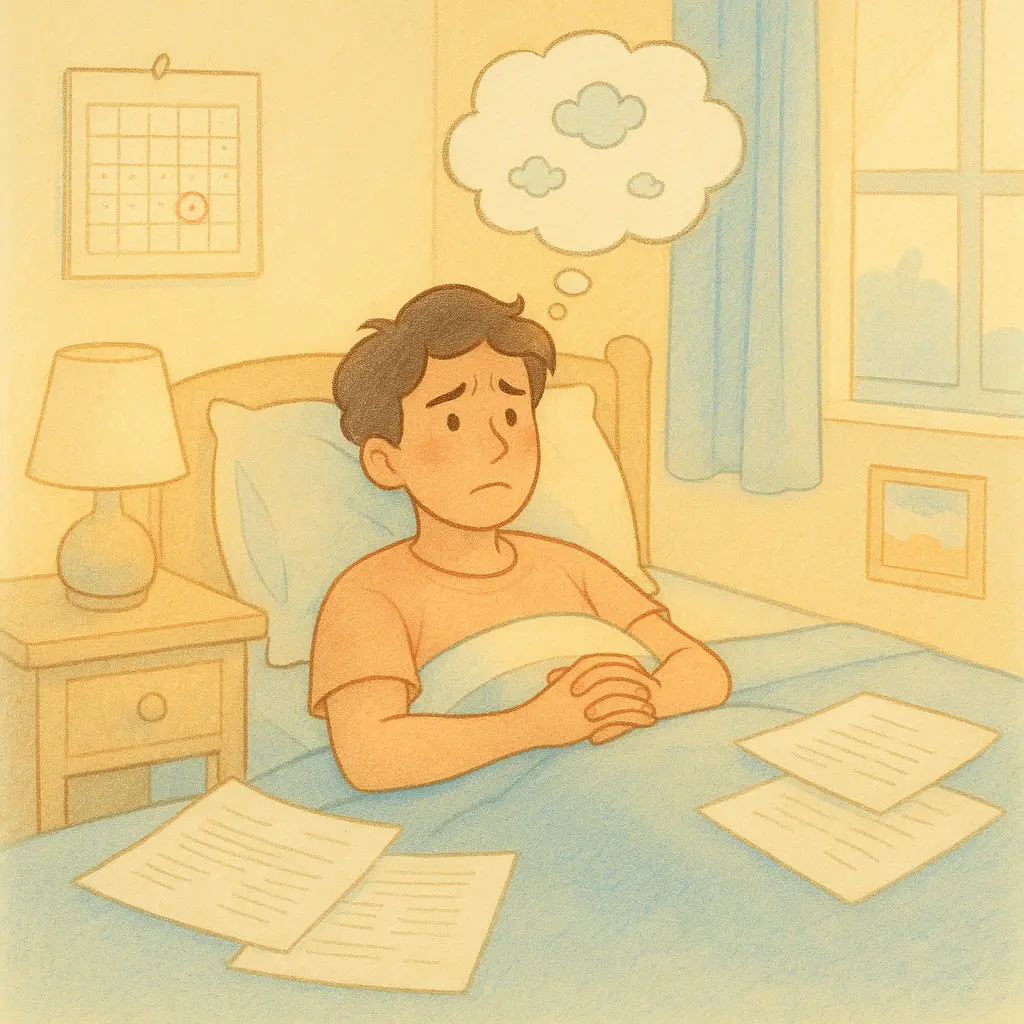
Acute insomnia
This is short-term insomnia, often triggered by stress, a traumatic event, or significant life changes. It usually lasts a few days to a few weeks.

Long-term insomnia
This type persists for a more extended period, typically lasting more than a month. It often requires professional treatment.
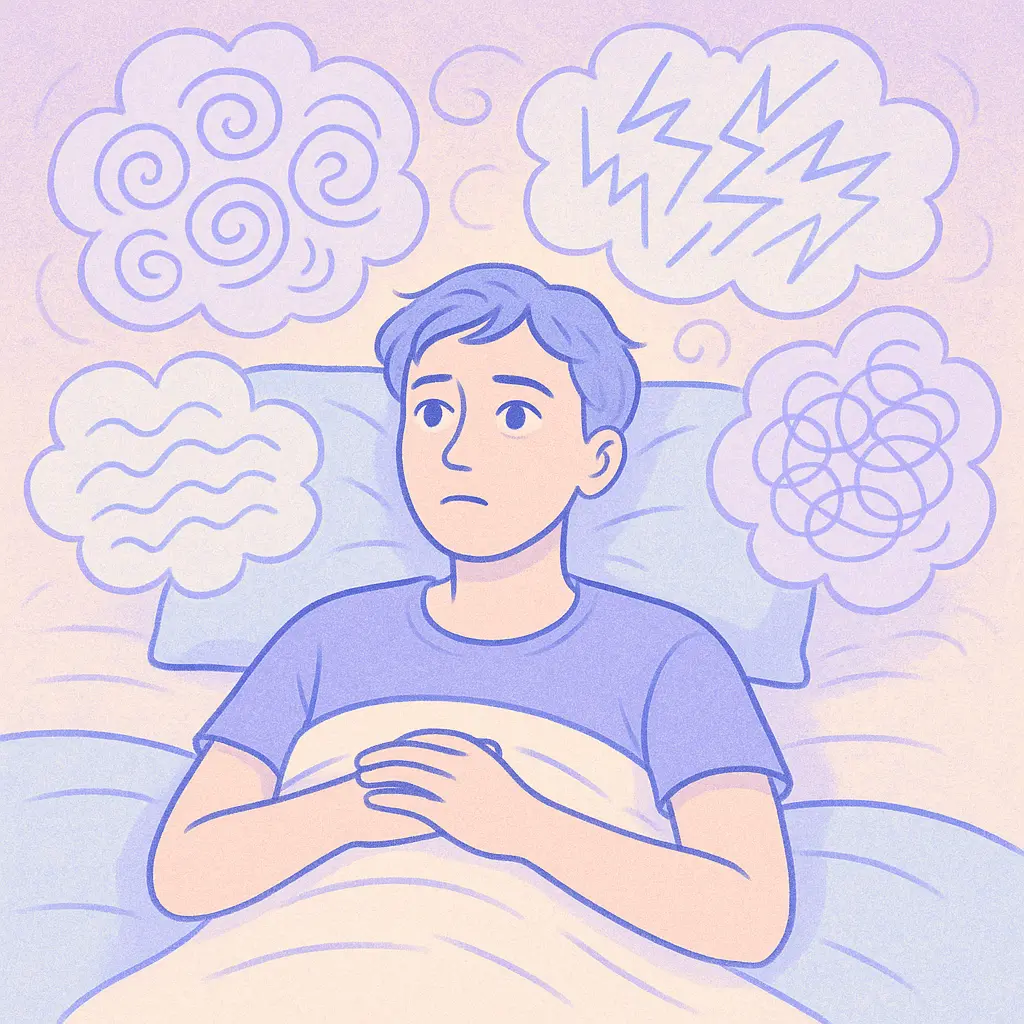
Primary insomnia
This type of insomnia is not linked to any other medical condition or health problem. It occurs on its own and is often related to psychological factors like stress or anxiety.
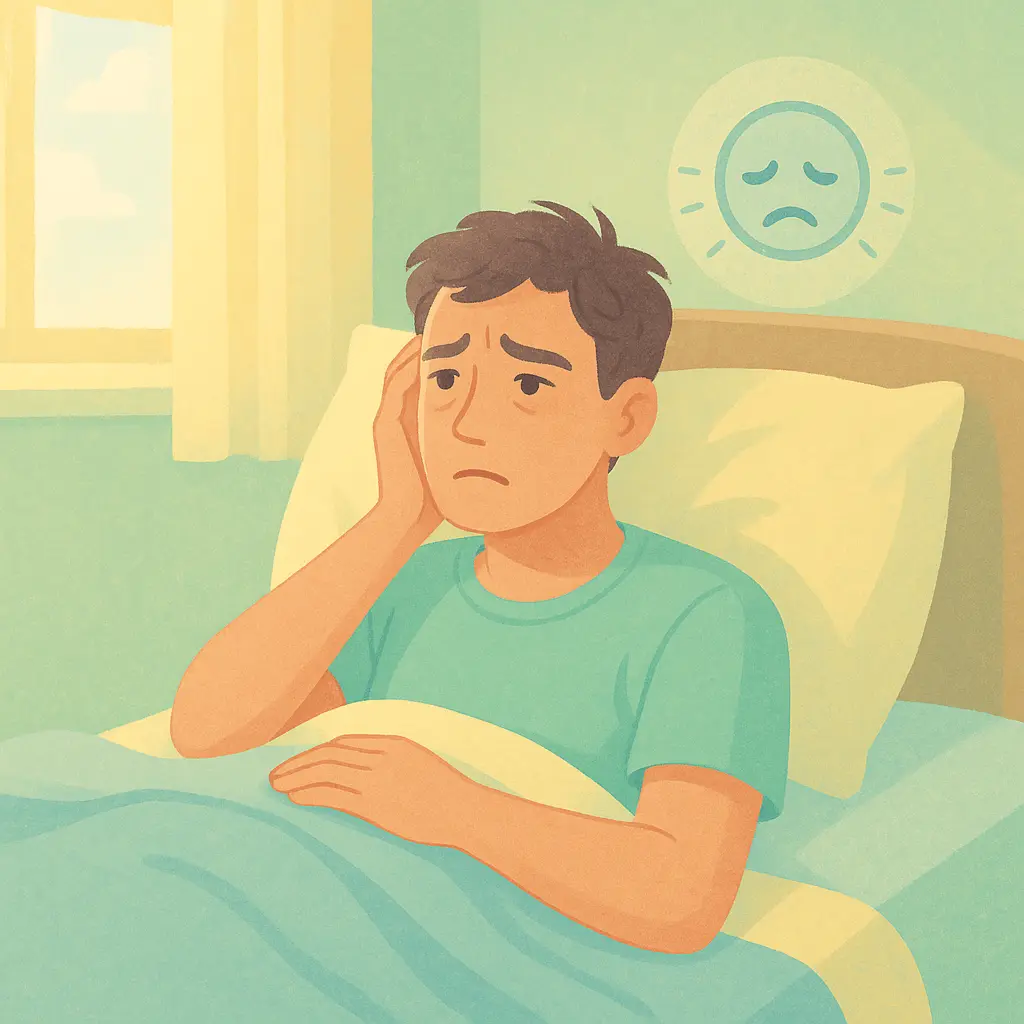
Secondary insomnia
This form of insomnia is associated with other medical conditions such as depression, anxiety, or chronic pain. It is a symptom of another underlying issue.
The Impact of Insomnia on Your Life
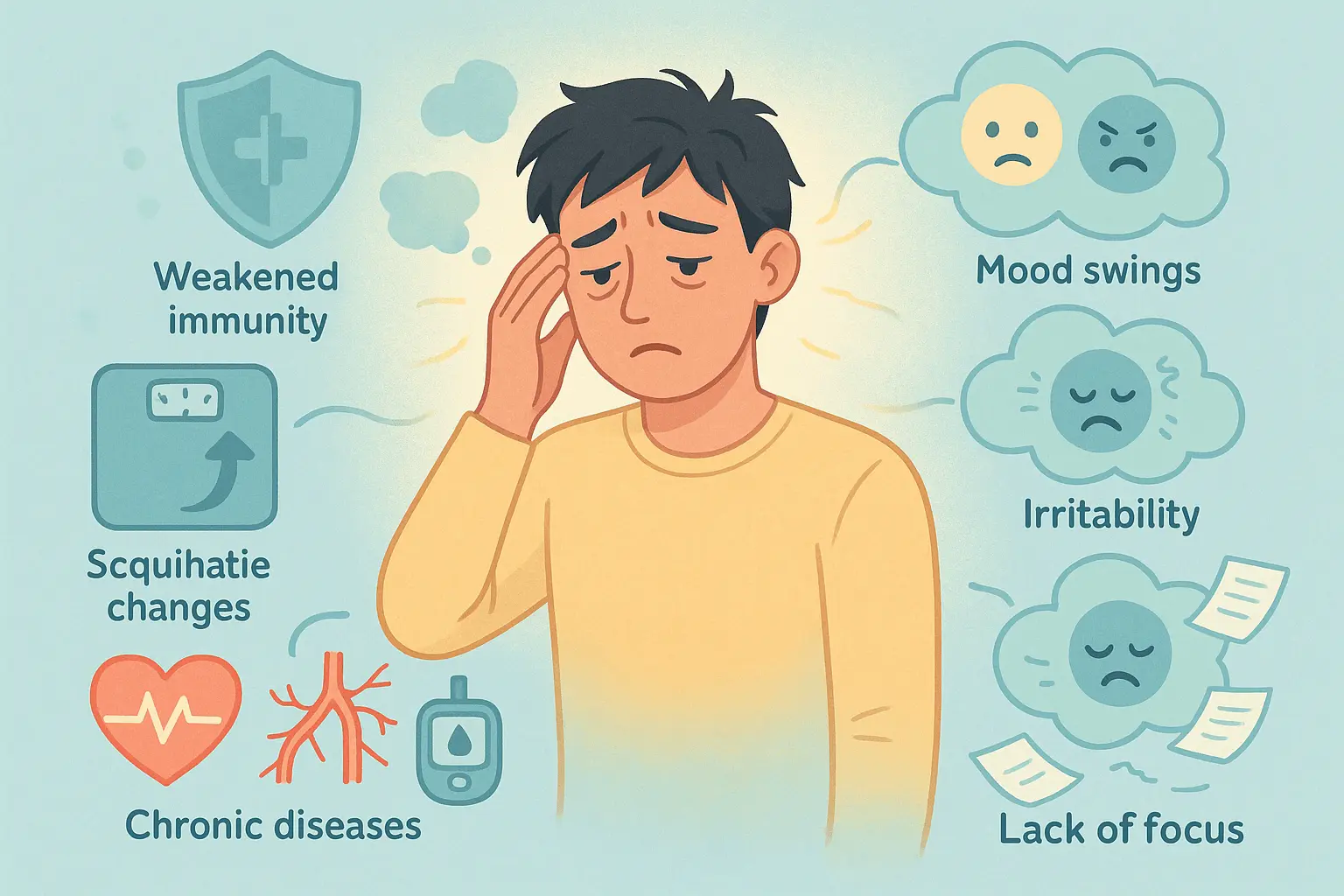
Living with insomnia can significantly affect every aspect of your life, from your physical health to your emotional well-being. The consequences of sleep deprivation are far-reaching, with both short-term and long-term impacts on your quality of life. Understanding the effects of insomnia is essential for taking the necessary steps toward recovery and better sleep.
Insomnia doesn’t just leave you feeling tired. It has serious health problems that can worsen over time. Sleep deprivation is linked to a variety of conditions, including weakened immunity, weight gain, and high blood pressure. It can also increase the risk of developing conditions such as heart disease, diabetes, and stroke.
Mentally, insomnia can cause irritability, lack of focus, and mood swings, which can further affect your productivity and personal relationships. Moreover, poor sleep can lead to mental health problems, exacerbating feelings of stress, anxiety, and depression. The effects of insomnia on both the body and mind cannot be ignored, as they can severely affect daily functioning and overall health.
Link Between Insomnia and Chronic Diseases
Studies have shown a strong correlation between insomnia and various chronic diseases. For instance, people with insomnia are more likely to develop heart disease, as poor sleep affects heart health by increasing blood pressure and inflammation. Insomnia and diabetes are also closely linked, as sleep deprivation disrupts insulin sensitivity and glucose metabolism, increasing the risk of type 2 diabetes.
Moreover, insomnia often worsens anxiety. When you’re sleep-deprived, the brain becomes more reactive to stress, which can lead to an ongoing cycle of poor sleep and heightened anxiety. Identifying the link between insomnia and chronic diseases is crucial for understanding why early intervention is necessary to prevent further health complications.
Emotional Strain of Living with Insomnia
The emotional impact of sleeplessness is profound. Insomnia and depression are strongly connected, as sleep deprivation contributes to feelings of sadness, hopelessness, and irritability. People with insomnia often experience mental stress, which can lead to a decrease in emotional well-being and social isolation.
Over time, the emotional strain of living with insomnia can become overwhelming. This constant cycle of poor sleep and emotional distress can affect your relationships, work performance, and overall quality of life. Addressing insomnia and depression is key to breaking the emotional toll it takes on your mind and body.
Sleep Hygiene
Why Sleep Hygiene is Crucial for Insomnia Recovery
Sleep hygiene is a vital component of overcoming insomnia and improving overall sleep quality. By adopting better sleep hygiene habits, you can significantly enhance your ability to fall asleep and stay asleep. Whether you’re dealing with acute insomnia or chronic insomnia, practicing proper sleep hygiene is one of the most effective insomnia treatment tips available.
In this section, we’ll explore why sleep hygiene is essential for insomnia recovery and provide practical tips to help you create a better sleep routine.
Why Sleep Hygiene is Crucial for Insomnia Recovery
The importance of sleep hygiene cannot be overstated when it comes to managing insomnia. Proper sleep hygiene involves a set of habits and environmental adjustments that promote healthy, restful sleep. By incorporating these practices into your daily routine, you can reset your sleep cycle, improve your sleep quality, and gradually reduce the symptoms of insomnia.
Adopting healthy sleep hygiene habits—such as establishing a consistent bedtime, avoiding caffeine late in the day, and reducing screen time before bed—helps regulate your circadian rhythm, making it easier to fall asleep and wake up naturally. It’s a crucial first step in insomnia treatment and can lead to lasting improvements in your overall well-being.
Practical Tips for Improving Your Sleep Environment
Creating an ideal sleep environment is one of the most effective ways to combat insomnia. Your bedroom tips for sleep play a significant role in enhancing sleep quality. Here are some practical steps you can take to create a quiet and comfortable space for restful sleep:
- Keep your bedroom dark: Use blackout curtains or an eye mask to block out light, as exposure to light can disrupt your sleep cycle.
- Maintain a cool temperature: A cooler room is generally more conducive to sleep. Aim for a temperature around 60-67°F (15-20°C).
- Eliminate noise: A quiet environment for insomnia is essential. Consider using earplugs, white noise machines, or fans to block out distracting sounds.
- Invest in a comfortable mattress and pillows: Ensure your bed provides adequate support and comfort for a good night’s sleep.

